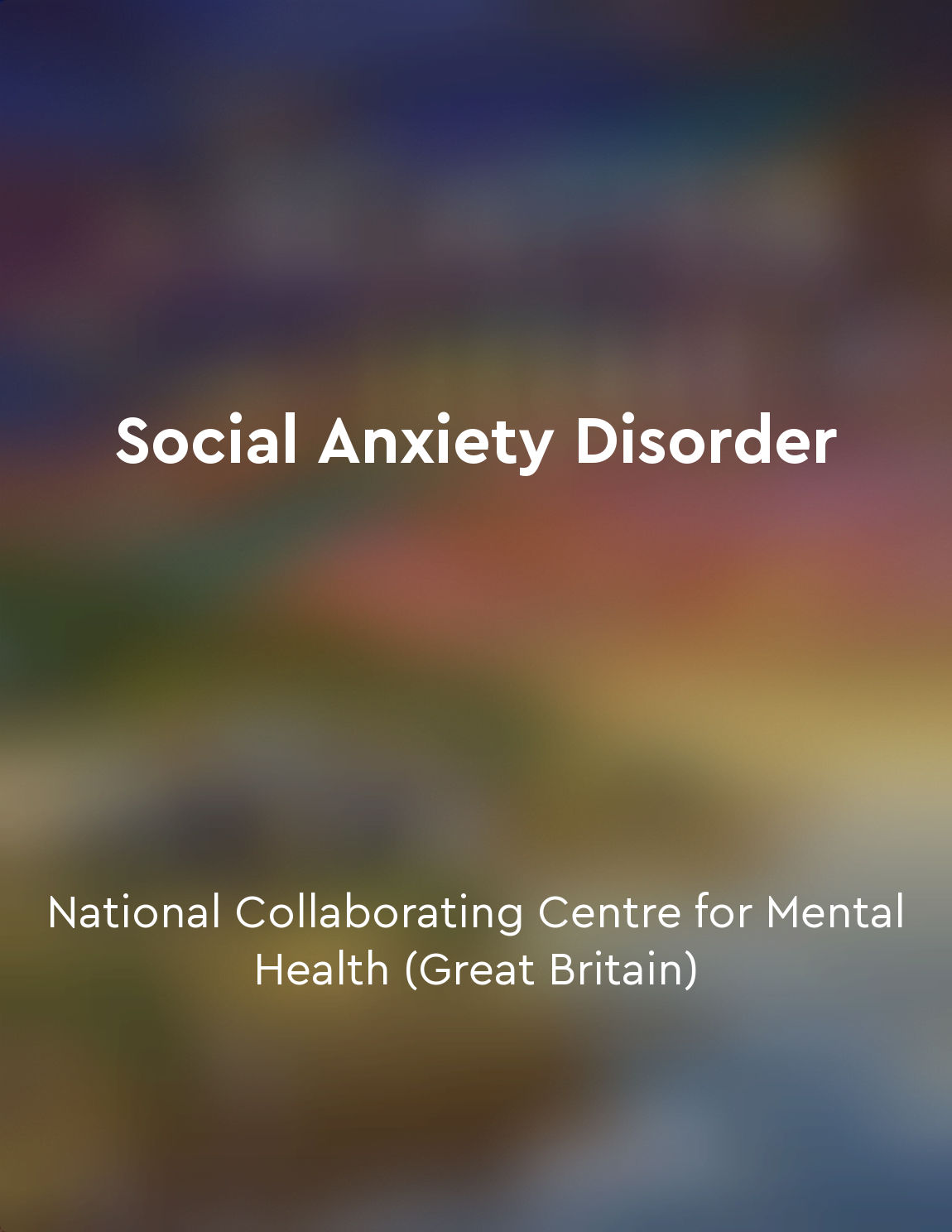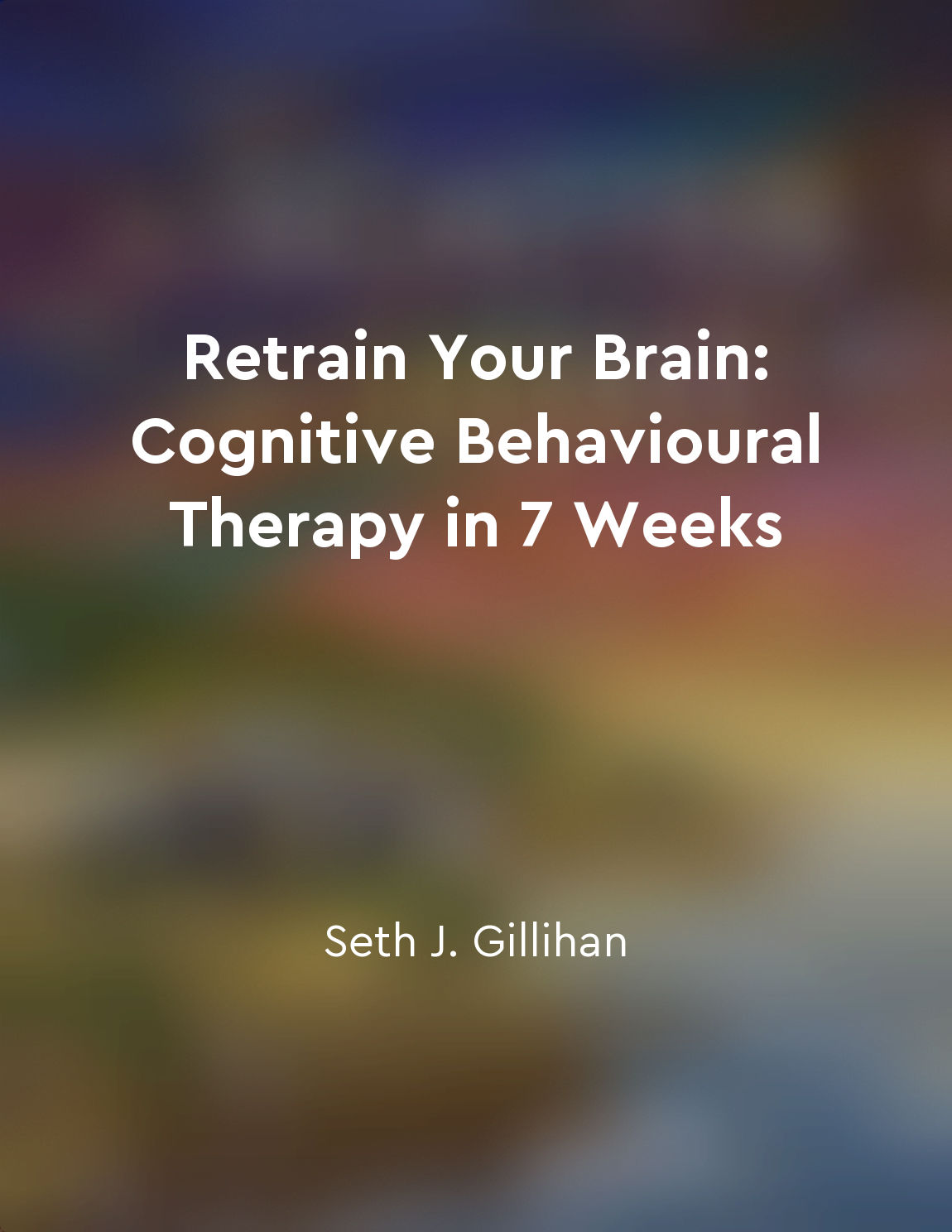Understand how thoughts shape feelings from "summary" of Retrain Your Brain: Cognitive Behavioural Therapy in 7 Weeks by Seth J. Gillihan
Our thoughts play a crucial role in shaping our feelings. It may seem like our emotions arise out of nowhere, but in reality, they are heavily influenced by the way we think about ourselves, others, and the world around us. This connection between our thoughts and feelings is at the core of cognitive-behavioral therapy (CBT). When we experience an event, our thoughts about that event immediately come into play. These thoughts can be automatic and unconscious, so we may not even be aware of them. However, they have a powerful impact on how we feel. For example, if we receive a compliment from a friend, our immediate thoughts may be positive, leading us to feel happy and appreciated. On the other hand, if we interpret the compliment as insincere or manipulative, our feelings may turn to suspicion or resentment. Our thoughts also have the ability to amplify or diminish our emotions. If we catastrophize a situation by imagining the worst possible outcome, our anxiety and fear will skyrocket. Conversely, if we challenge our negative thoughts and replace them with more balanced and realistic ones, our feelings of distress will decrease. One of the key principles of CBT is that our thoughts are not always accurate reflections of reality. They are often distorted by cognitive biases and irrational beliefs. By learning to identify and challenge these distortions, we can gain greater control over our emotions. This process involves examining the evidence for and against our thoughts, considering alternative perspectives, and creating more balanced interpretations of events. By understanding how our thoughts shape our feelings, we can begin to take control of our emotional responses. Instead of being at the mercy of our automatic thoughts, we can learn to challenge and change them, leading to more positive and balanced emotions. This shift in perspective is at the heart of CBT and can have a profound impact on our mental well-being.Similar Posts
Good nutrition is essential for a healthy brain
Proper nutrition is crucial for maintaining the health and functionality of the brain. The brain is a highly metabolically acti...

Progress may be slow, but it is important to stay committed to treatment
In the treatment of social anxiety disorder, progress may not always be quick or immediately noticeable. It is common for indiv...
Behavioral interventions play a key role in CBT
Behavioral interventions are an essential component of cognitive-behavioral therapy (CBT), as they play a crucial role in helpi...
Set realistic goals and celebrate small victories
It's important to set realistic goals for yourself. By setting goals that are achievable, you set yourself up for success. If y...
Generalization of skills learned in therapy is important for longterm maintenance
It is crucial for individuals undergoing therapy to apply the skills they have learned in various real-life situations. This pr...

Challenging irrational beliefs
One of the key aspects of cognitive therapy is identifying and challenging irrational beliefs that contribute to emotional dist...
Take care of your physical and mental health
It is important to prioritize the well-being of your body and mind. Your physical health is essential for your overall success ...

Build resilience through daily gratitude exercises
One powerful way to boost your resilience is to practice gratitude exercises every day. By focusing on the things you are grate...
Proper nutrition is vital for brain health
The brain is a remarkably sophisticated organ that requires proper nutrition to function optimally. Many people underestimate t...
Listen to your intuition and inner wisdom
When you learn to trust your intuition and inner wisdom, you are tapping into a powerful source of guidance that is always avai...

